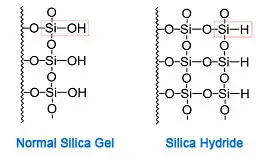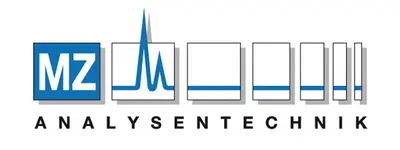Checkout using your account
Checkout as a new customer
Creating an account has many benefits:
- See order and shipping status
- Track order history
- Check out faster
Silica Columns
Silica-based HPLC columns
Silica gel (silica) is the basis of most HPLC columns available on the market today. Silica gel is solid, amorphous silicon dioxide that is used for HPLC applications in the form of small particles of a defined size. On this page you will find information on the advantages and disadvantages of silica chromatography columns, classifications and manufacturers of suitable HPLC columns.
If you cannot find what you are looking for, simply contact us. We are happy to help you as a manufacturer of silica HPLC columns!
Basics
How can silica gels be categorised for HPLC?
1. According to their external particle shape
Nowadays, silica gel of almost perfect spherical particle shape is mostly used, although there are only a few materials based on broken silica gel, such as µBondapak™ (Waters™) or Lichrosorb™ (Merck™).
Compared to irregularly shaped particles, spherical particles have the advantage that they are more efficient at low back pressure with the same average particle size.


2. According to type A, B or C
The so-called type-A silica gel was the first silica gel to be used for HPLC. It contains a large proportion of ionised (acidic) silanols, partly due to the presence of various metal impurities, which lead to undesirable peak shapes and, in some cases, insufficient separation performance.
Nowadays, high-purity silica gel, also known as type B silica gel, is used almost exclusively for chromatography applications. Compared to type A silica gel, this has only a minimal proportion of ionised silanol groups. This increases the pH stability of the silica gel and improves the separation efficiency.
Type C Silica Gel™ is a silica gel developed by Prof Joseph Pesek at San Jose State University, USA, and is now marketed by MicroSolv™ Technology Corporation. It is based on type B silica gel, whereby the free silanols otherwise present on the surface are replaced by silica hydrides. This almost completely prevents undesirable analyte-silanol interactions and no hydration shell with water is formed.

3. After their modification
Unmodified silica gel has polar silanols and siloxanes on its surface. For almost all types of chromatography, certain chemical groups are bound to these polar groups in order to modify the surface properties of the silica gel in the desired way. Nowadays, a variety of HPLC columns with differently modified silica gels are available on the market, with octadecyl-modified silica gel still being the most commonly used stationary phase.
As a manufacturer of silica chromatography columns, we offer more than 15,000 silica products. You can find the products online on the manufacturer's website of MZ-Analysentechnik GmbH under the following link. If you cannot find a product, please contact us. We have more than 50 other silica column manufacturers in our sales programme. If the manufacturer you are looking for is not listed, do you have any questions or would you like advice? Contact us, we will be happy to help you!
No results were found for this filter combination. Please adjust your selection and try again.
The right column for you - we will be happy to support you individually
Competent consultants are always at your side. Write a message to our consultants, we will get back to you and give you individual support.
You will find:
Write us a message and we will get back to you as soon as possible.

![[English:] [English:]](https://cms.mz-at.de/fileadmin/_processed_/a/f/csm_image_categories-hplc-columns_hersteller_web23_w600-h225px_81b652d0bf.webp)